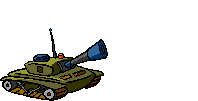

 Chaplain John Stepp and the Kosova Children
Chaplain John Stepp and the Kosova Children







I remember Chaplain
John always surrounded by the Kosovar children, walking with them, dancing
with them, taking pictures of them. I bet you never could find a better
picture album than John has of the children. He knows them by name; he
knows their stories; and he knows what they went through. He was also
the conductor of the church choir. In just two days the children of Kosova
learned a beautiful song in English "We sing to you, the children
of Kosova."
It was a big thank you to America, which gave them refuge and hope.
One day I had a nice chat with Chaplain John. Both of us were talking about the kids. He had scanned many of their pictures. Those pictures are his memories.
I asked the chaplain what was the one thing that he was going to remember forever about the people of Kosova and their children.
"What I will never forget from my experience at Fort Dix is the Albanian gratitude toward America. Let me tell you this story.
An Albanian woman, Mrs. Maxhuni, died during the flight to America. The next day was her burial. Two days later General Zaic went to see her family. Her son Ali said, "I wish my mother could have lived three more days so she could see the generosity and love of the American people."
He continued, 'I was watching this little boy who had come from so far away, going through so horrible an experience. He was given potato chips. He didn't tear into them as a hungry kid might have but looked at me and asked, "Do you want some?" '
"What is your religion?" the chaplain was asked, all of a sudden by one of the children he was playing with. "Christian," he answered.
"Too bad, Milosevic is Christian," came the answer.
"But I love you," John said.
"OK," the boy said, acceptingly.
These children dreamed about their homes even though most of them do not have any homes left. Serb soldiers turned their houses into ashes. But for them, in their imagination, their homes are still there. The children can see them even bigger, more beautiful and stronger. And there are no Serbs soldiers around.
A little girl was drawing a picture of a house. Then she put a fence around the house and a row of very big flowers.
John asked her, "What are you drawing?"
"This is my home in Kosova," she replied.
"Why are these flowers so big?" he asked.
"Because now in our garden is the blood of my relatives and it will help them grow big and beautiful."
I found Chaplain John one day, early in the morning, near the out-processing center. It was not even 8 a.m. It was amazing to find him there that early. I took a picture of him as he was waving to his little friends who were leaving to resettle somewhere in America. They were hugging new friends they had made at the camp. Some of them were crying. "We cried when we left Kosova and now again when we are leaving Fort Dix," said a young girl. They knew that after Fort Dix a new life would begin for them, a life that would need courage without friends or compatriots to be there for them.
Of course, a lot of them will remember the warmth of the American personnel at the camp. They will remember Chaplain John Stepp too, a chaplain in a military uniform. Men in uniform had a big impact on the lives of these children. But the men in uniform they saw in Kosova were wearing black masks, and in Fort Dix they were wearing smiles of friendship.
As one of the children put it: "In my country we run away from the soldiers. In America, we run toward the soldiers."
Chaplain Stepp did these things because, as he put it, "I am
Christian and I believe this is what Christ would do."
© Albana
Melyshi Lifschin | Last updated May 12, 2016 12 Noon
All rights reserved, including the right of reproduction in whole or in part in any form whatsoever. |
||
 |
||